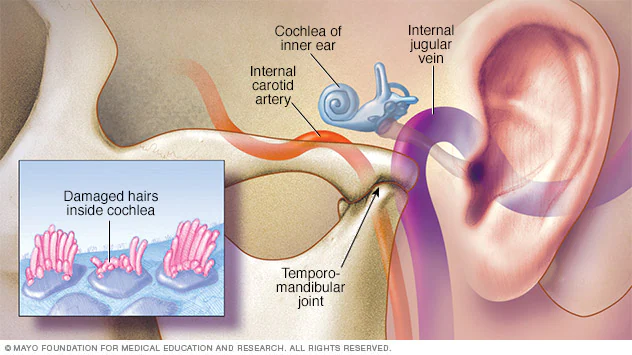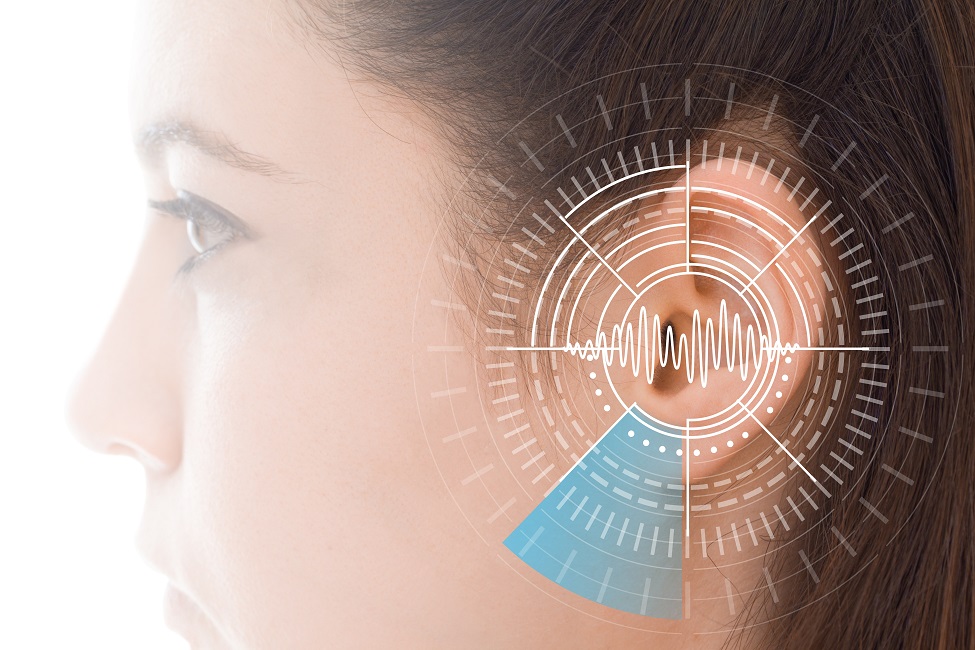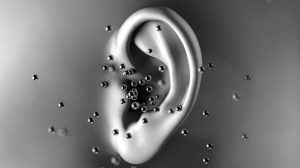United States: Imagine a persistent sound that shadows you wherever you go. It could be a sharp ring, a hollow whoosh, or even a constant hum reminiscent of crickets. This inescapable auditory phenomenon is an experience many individuals must endure.
“I felt like a high-pitched sonic wave had taken residence in my head,” recalled Elizabeth Fraser, who developed tinnitus unexpectedly last autumn. At a time when many were wary of visiting doctors due to the pandemic, the onset of her symptoms felt like an invasion she couldn’t repel. “It was overwhelming, distressing beyond words,” she shares.
Understanding Tinnitus: A Phantom Sound
Tinnitus refers to the perception of sound in the absence of an actual external source. “Think of it as an auditory phantom,” explained Dr Sarah Sydlowski, an audiologist with the Cleveland Clinic.
The Centers for Disease Control and Prevention (CDC) estimates that around 20 million Americans are affected by chronic tinnitus. Studies indicate that the pandemic triggered both new cases and exacerbated the condition in those already afflicted. In the UK, the British Tinnitus Association saw an unprecedented surge in people seeking support, including a 256 percent increase in online consultations.
“There’s a clear link between heightened stress and the onset or worsening of tinnitus,” noted Eldre Beukes, an audiologist at Lamar University. Her research highlights that those who felt isolated or struggled with elevated anxiety during the pandemic were particularly vulnerable to worsening symptoms.

Tinnitus can surface at any point in life. “My patients range across all ages and experience tinnitus in varying degrees, from mild to debilitating,” Sydlowski said, emphasizing that for some, the constant ringing becomes so overwhelming that it can lead to feelings of hopelessness.
“A lot of patients leave their doctor’s office feeling utterly lost,” shared Jennifer Gans, a psychologist who has pioneered therapeutic approaches for tinnitus. People often learn that no surgery or medication can cure it. But, Gans added, “There are numerous ways to manage tinnitus that people may not be aware of.”
Techniques and Insights for Tinnitus Management
1. Harnessing Mindfulness to ‘Retune’ the Brain
Tinnitus can stir profound frustration, especially as many feel trapped by the incessant noise. This often amplifies their anxiety, inadvertently intensifying the sound. Mindfulness-based practices equip individuals with techniques to replace this stress with calm, gradually desensitizing them to the ringing.
A key element involves challenging negative thoughts, like “I can’t live like this” or “Something serious must be wrong.” Gans, who developed the Mindfulness-Based Tinnitus Stress Reduction program, explained, “With practice, we can reshape the brain’s response and quiet these habitual thoughts.”
The program draws from Jon Kabat-Zinn’s mindfulness training, which is known to alleviate chronic pain by helping individuals embrace the present moment without fear. Many patients report that with practice, they achieve a sense of acceptance, which softens the intrusion of tinnitus.
One effective mindfulness method is the “body scan,” where attention is systematically directed across different parts of the body, creating a soothing counterpoint to the constant ring. Behavioral therapies, including tinnitus retraining and acceptance therapies, provide similar strategies that have proven effective for reducing anxiety and depression tied to tinnitus.
2. Dampening the Sound with Masking Techniques
Distracting from the ringing can be as straightforward as introducing ambient noise, said Sydlowski. “For some, simply using a fan or playing low-level static from a radio at night can be incredibly soothing.”
The American Tinnitus Association advocates for various sound-masking tools to alter one’s perception of tinnitus. These devices aren’t a cure but can significantly ease the sensation, reducing its disruptive impact.
When Fraser struggles with the sound, she turns to an app that plays soft rain sounds, creating a subtle auditory shield. “It helps a lot,” she noted, emphasizing that staying busy or engaging in activity can diminish her awareness of the ringing, while quieter moments tend to intensify it.
3. Regular Hearing Assessments
Injuries or exposure to loud noise can heighten one’s susceptibility to tinnitus. It often develops alongside hearing loss, particularly as individuals grow older. Damage to tiny hair cells within the cochlea, essential for detecting specific frequencies, can lead the brain to “search” for these missing sounds, inadvertently producing the ringing.
Some with hearing-related tinnitus find relief with hearing aids, while severe cases may benefit from cochlear implants, Sydlowski explained.

4. Exploring Underlying Health Issues
While tinnitus is generally benign, it can correlate with other health conditions. For instance, some may experience tinnitus as a side effect of medication or from issues related to temporomandibular joint (TMJ) dysfunction, especially if stress leads to jaw-clenching.
Sydlowski emphasized the importance of consulting a healthcare provider if tinnitus appears. “It might indicate an underlying condition requiring attention,” she advised, recommending that patients see an audiologist or a tinnitus specialist.
5. Managing Stress as a Tinnitus Trigger
A balanced lifestyle—encompassing regular exercise and a nutritious diet—won’t directly impact tinnitus biology but can improve resilience. Since tinnitus often aligns with stress, monitoring mental health is essential. Symptoms like anxiety, sleep disruptions, or depressive moods can worsen tinnitus.
Since stress often escalates without notice, an increase in tinnitus severity can act as a signal to pause and practice self-care. “If the sound becomes too much, it’s time to step back and focus on relaxation,” Gans suggested.
Taking time to unwind, engage in exercise, or pursue calming hobbies not only benefits overall well-being but may also soften the intrusive sounds of tinnitus.













Be First to Comment